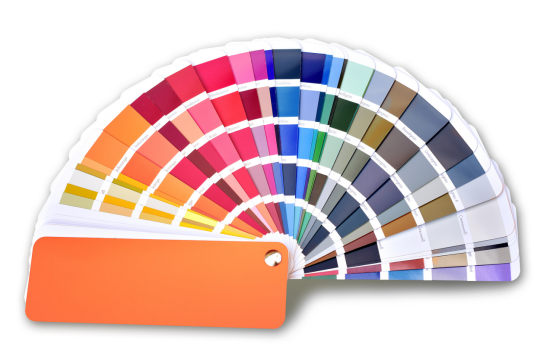Which Industries Are Suitable for Spray Coating Production Lines?

Spray coating isn't just for cars or appliances—it's everywhere.
Spray coating production lines are widely used in industries that demand durable finishes, corrosion resistance, and aesthetic consistency across high volumes of products.
From aerospace to electronics, spray coating lines are critical for maintaining performance, protection, and brand appearance.
Let’s dive into the industries that benefit most from integrating spray coating production lines.
Why is spray coating used in the automotive industry?

Every vehicle you see has been through multiple spray coating steps.
The automotive industry relies on spray coating for exterior finishes, rust protection, and heat-resistant engine part coatings.
Spray coating lines ensure car bodies are evenly painted and resistant to scratches, chemicals, and UV light. Parts like bumpers, panels, exhausts, and undercarriages are also coated to prevent corrosion and wear.
High-throughput and repeatability make automated spray lines essential in automotive plants, where thousands of parts are processed daily. These lines also allow for quick color changes and layered coatings.
How is spray coating used in aerospace?
Aircraft endure extreme conditions, from saltwater exposure to high-speed friction.
Aerospace manufacturers use spray coating lines to apply lightweight, thermal, and corrosion-resistant finishes on fuselage panels, engines, and structural components.
These coatings must meet stringent performance standards. Thermal barrier coatings protect jet engine parts, while anti-corrosion layers extend the life of aluminum fuselage sections.
Because consistency and traceability are vital, production lines in aerospace are often integrated with digital control systems and precision robots.
What role does spray coating play in consumer electronics?
You interact with spray-coated surfaces every time you touch your phone or laptop.
Spray coating production lines in electronics apply smooth, protective layers that improve the look and durability of devices.
They help prevent scratches, fingerprints, and moisture damage, while also aiding heat dissipation. In some cases, conductive or anti-static coatings are added to protect internal circuits.
These lines are typically compact, ultra-clean, and finely tuned for accuracy—perfect for small devices with strict cosmetic and functional standards.
Why is spray coating important in furniture manufacturing?
Coating is the difference between rough plywood and high-end furniture.
Furniture manufacturers use spray coating lines to finish wood, MDF, and metal pieces with color, gloss, and protection.
Lacquers, varnishes, and powder coatings are applied to create smooth, scratch-resistant surfaces. Automated lines speed up production, especially for high-volume items like office desks or metal frames.
They also help control finish consistency across batches, ensuring every unit looks identical—critical for brand image and consumer trust.
How does the construction industry use spray coating lines?
Buildings last longer with the right protective layers.
Spray coating lines in construction apply anti-rust, water-repellent, and UV-stable finishes to steel beams, concrete panels, and wood elements.
These coatings prevent structural degradation and reduce maintenance costs. In precast concrete factories or steel profile workshops, automated lines coat surfaces efficiently before shipment.
This ensures every element arrives protected and ready for long-term performance.
What makes spray coating vital for medical device production?
In medicine, precision and safety are everything.
Spray coating lines are used to apply sterile, biocompatible, and anti-microbial coatings to surgical tools, implants, and diagnostic equipment.
Hydrophobic coatings allow tools to glide better, while anti-microbial layers reduce infection risks. Implant coatings improve tissue integration and reduce rejection rates.
Medical coating lines are operated under strict cleanroom protocols and must comply with ISO and FDA standards.
How is spray coating used in appliance manufacturing?
From kitchen ovens to washing machines, spray coating is everywhere.
Appliance manufacturers use production lines to apply corrosion-resistant, glossy, and easy-clean coatings on internal and external parts.
Enamel coatings on oven interiors, fingerprint-resistant coatings on stainless-steel refrigerators, and textured finishes on washing machine drums are all applied via automated systems.
These lines ensure color uniformity and increase production speed for high-volume appliances.
Is spray coating used in marine industries?
Saltwater is brutal—marine coatings must stand up to it.
The marine industry uses spray coating lines to protect ships, offshore rigs, and marine equipment from corrosion, algae, and abrasion.
These systems apply thick, high-performance coatings in shipyards and fabrication plants. Epoxy and polyurethane systems are common, often layered for maximum protection.
Production lines are built for large parts and harsh environments, sometimes involving robotic arms and heated drying tunnels.
Can spray coating lines benefit the energy sector?
Wind turbines, oil rigs, and solar panels all face the elements.
Energy sector manufacturers use spray coating to apply thermal, anti-corrosion, and UV-resistant finishes on components exposed to harsh environments.
Spray coating lines handle large parts like turbine blades or pipeline sections. These coatings extend service life and reduce downtime from weather or chemical wear.
Automation ensures coatings meet the exact specifications needed to handle high stress and outdoor exposure.
What about agriculture and heavy equipment?
Tough equipment needs tough coatings.
Agricultural and construction equipment manufacturers use spray coating lines to finish tractors, loaders, and implements with thick, chip-resistant finishes.
These coatings withstand mud, gravel impact, and constant sun exposure. Powder and wet coatings are applied in multi-layer systems, often with robotic arms to reach complex shapes.
The result: machines that last longer, resist rust, and look new even after years of work.
Conclusion
Spray coating production lines are essential in industries that value protection, precision, and speed. Whether for phones or planes, these systems ensure every product gets a consistent, durable, and beautiful finish.
